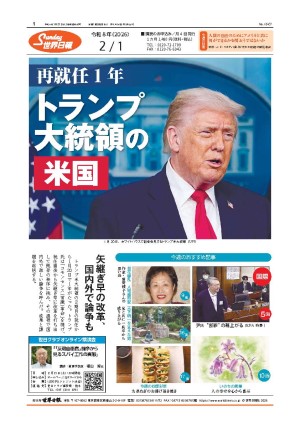米国民の80%が学校教育で最も重要なのは読み書きの習得だと回答 80% of Americans say top priority of K-12 education should be learning to read and write
最新の全米調査によると、幼稚園から高校3年生までの生徒たちの最重要目標は、読み書きの習得であるべきだと、米国民の80%以上が回答した。
最優先事項の中で最下位近いランキングだったのは何か。大学進学だ。「リアル・クリア・オピニオン・リサーチ」が9月20~24日に実施した調査で、このような結果が明らかになった。
投票に行く可能性の高い有権者2014人を対象にしたこの世論調査では、「米国の歴史」や「就業」、安全の確保が、幼稚園から高校3年生までの良質な教育の優先事項として上位を占めた。だが、世論調査専門家は2日、民主党大統領候補指名争いでこのことが語られることは、あるとしてもまれだと指摘した。
「これは興味深い。2020年大統領選で語られていることと完全に反比例しているとまでは言わない。だが、ツイッターが本当の米国ではないことを示している」。「リアル・クリア・ポリティクス」のカール・キャノン・ワシントン支局長は語った。「ワシントンで語られていることはいつも、国民が考えていることと同じというわけではない」
専門家が注目するのは、「就業」が有権者の間で比較的上位を占めていることだ。調査に答えた72%が「就業」を「重要または極めて重要」と位置付ける一方、大学進学の準備を同じように重要視している米国民は48%にとどまった。
民主党の候補者たちは大学授業料無償化のプランをめぐって言い争っているが、有権者が抱くより大きな懸念を見逃していると、キャノン氏は指摘した。
「高等教育費をどのように払うかが、2020年大統領選で民主党内の大きな議題になっている。だが、職業訓練について誰も語らないとすれば、それは誤りだ」と、キャノン氏は述べた。
有権者にとって「就業」が何を意味するかを尋ねると、専門家は、ウォール街で働くために必要なビジネスの学位取得や溶接工になるための2年の学位取得など、意味は幅広いと指摘した。
「だが、チョーサーで博士号を取ることが国民の考えていることではないことは確かだ」と、キャノン氏は述べた。
調査で示された優先事項は、▽読み書き(84%)▽良い市民になること(76%)▽暴力や身体的危害からの安全確保(75%)▽批判的思考(70%)▽米国史の知識を持つこと(70%)で、最下位にランクしたのが、▽市民対話への参加(41%)▽現状維持への挑戦(46%)だった。
だが、調査では、中等教育後の授業料支援を過半数、しかも超党派の人が支持していることが分かった。リアル・クリア・ポリティクスの調査によると、59%の有権者が大学授業料無償化を支持した。この数字は、授業料無償化を中・低所得世帯の生徒に限定すると63%に、2年間の短大無償化では71%に上昇する。
学校の安全に対する親の懸念は銃乱射事件だけでなく、ドラッグ、ネットいじめ、銃による暴力も含まれると、専門家は指摘する。特にシカゴのような場所では、2019年の最初の6カ月間で60人の子供が射殺された。
「これについては党派間に相違はまったく存在しない」。ソーシャル・スフィア社の共同設立者、ジョナサン・チャベス氏は指摘した。
(10月3日付)
More than 80% of Americans say the top goal of K-12 students should be learning to read and write, according to a new national survey.
Ranking close to last among top priorities? Going to college, according to the survey conducted Sept. 20-24 by RealClear Opinion Research.
The poll of 2,014 likely voters also found that “American history,” “the workforce” and staying safe are ranked high as priorities of a good K-12 education - but are rarely, if ever, talked about on the Democratic presidential campaign trail, the pollsters said Wednesday.
“It’s an interesting thing. I wouldn’t say it’s an inverse relationship exactly to what’s being talked about in the 2020 campaign, but it does show us that Twitter is not real America,” said Carl M. Cannon, the Washington bureau chief with RealClearPolitics. “And what’s being talked about in Washington is not always what people are thinking.”
The pollsters noted the relatively high rank of “workforce” among voters. While 72% of those surveyed ranked “workforce” as “important or very important,” only 48% of Americans viewed college preparation with similar importance.
Mr. Cannon said Democratic candidates sparring over plans for free college tuition could be missing bigger concerns among voters.
“How you pay for higher ed is a big part of what’s being discussed on the Democratic side in 2020,” Mr. Cannon said. “But if no one’s talking vocational education, they’re making a mistake.”
Pressed on what “workforce” means to voters, the pollsters suggested a variety of meanings, including earning a business degree to work on Wall Street and getting a two-year degree to be a welder.
“But it does suggest that, you know, a Ph.D. in Chaucer is not what people are thinking about,” said Mr. Cannon.
The survey’s top priorities: “Read and Write” (84%), “Be Good Citizens” (76%), “Stay Safe from Violence and Physical Harm” (75%), “Think Critically” (70%) and “Have Knowledge of American History” (70%). Among the lowest ranked priorities: “Engage in Civil Discourse” (41%) and “Challenge the Status Quo” (46%).
However, the poll found majority - even bipartisan - support for increases to post-secondary tuition assistance. Fifty-nine percent of voters support free college and tuition, the RealClearPolitics found. That figure rises to 63% for free tuition for only middle- or low-income students, and to 71% for free two-year schools.
The pollsters said parents’ concerns about school safety extend beyond mass shootings and include drugs, cyberbullying and gun violence, especially in places like Chicago, where 60 children were gunned down in the first six months of 2019.
“There’s literally not a partisan gap on this,” said Jonathan Chavez, co-founder of SocialSphere Inc.
October 3, 2019





